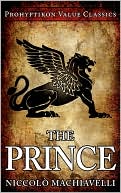Beauty: The Invisible Embrace
Beauty does not linger, it only visits.\ Yet beauty's visitation affects us and invites us into its rhythm,\ it calls us to feel, think, and act beautifully in the world:\ to create and live a life that awakens the Beautiful.\ Beauty is a gentle but urgent call to awaken. Bestselling author John O'Donohueopens our eyes, hearts, and minds to the wonder of our own relationshipwith beauty by exposing the infinity and mystery of its breadth. His wordsreturn us to the dignity of silence,...
Search in google:
Beauty does not linger, it only visits. Yet beauty's visitation affects us and invites us into its rhythm, it calls us to feel, think, and act beautifully in the world: to create and live a life that awakens the Beautiful.Beauty is a gentle but urgent call to awaken. Bestselling author John O'Donohue opens our eyes, hearts, and minds to the wonder of our own relationship with beauty by exposing the infinity and mystery of its breadth. His words return us to the dignity of silence, profundity of stillness, power of thought and perception, and the eternal grace and generosity of beauty's presence. In this masterful and revelatory work, O'Donohue encourages our greater intimacy with beauty and celebrates it for what it really is: a homecoming of the human spirit. As he focuses on the classical, medieval, and Celtic traditions of art, music, literature, nature, and language, O'Donohue reveals how beauty's invisible embrace invites us toward new heights of passion and creativity even in these uncertain times of global conflict and crisis. Publishers Weekly The author of the bestselling Anam Cara hits a lyrical mark again with this book that boldly takes up an eternal verity and ideal-beauty. O'Donohue's premise is urgent and sweeping: "Politics, religion, and economics and the institutions of family and community all have become abruptly unsure. At first, it sounds completely naive to suggest that now might be the time to awaken and invoke beauty. Yet this is exactly the claim that this book explores." And so the author, who has a background in philosophy and has written about Hegel, seeks "intimations" and manifestations of beauty, finding it in music, color and movement, as well as some less likely locations-imperfection and death. Beauty is sensuous and present, but it is also always pointing to the transcendent. Its trail leads to the recognition of God, with O'Donohue quoting the novelist Dostoyevski-"Perhaps it is beauty that will save us in the end"-as well as medieval Christian mystic Meister Eckhart, whose thought he weaves through the book. O'Donohue writes like the poet he is ("Memory is the place where our vanished days secretly gather"), and he generously quotes from other poets across cultures and times. He also liberally draws into his circle of imagination the great philosophers of beauty, from Plato and Aquinas to contemporary German philosopher Hans-Georg Gadamer. The resulting book is a lively and informed discussion among great minds-a digest of provocative views on an inexhaustible and compelling topic. This refreshing book falls like rain on the parched plain of contemporary discourse. (Mar.) Forecast: The Irish scholar O'Donohue will launch this book in the U.S. this month with visits to New York, Austin, Baltimore and Los Angeles. Copyright 2004 Reed Business Information.
Introduction11The Call of Beauty112Where Does Beauty Dwell?323The Music of Beauty594The Colour of Beauty825The Joy of Shapes That Dance1136Imagination: Beauty's Entrance1307Attraction: The Eros of Beauty1508The Beauty of the Flaw1719The White Shadow: Beauty and Death19310God Is Beauty217Acknowledgements251Bibliography255
\ Publishers WeeklyThe author of the bestselling Anam Cara hits a lyrical mark again with this book that boldly takes up an eternal verity and ideal-beauty. O'Donohue's premise is urgent and sweeping: "Politics, religion, and economics and the institutions of family and community all have become abruptly unsure. At first, it sounds completely naive to suggest that now might be the time to awaken and invoke beauty. Yet this is exactly the claim that this book explores." And so the author, who has a background in philosophy and has written about Hegel, seeks "intimations" and manifestations of beauty, finding it in music, color and movement, as well as some less likely locations-imperfection and death. Beauty is sensuous and present, but it is also always pointing to the transcendent. Its trail leads to the recognition of God, with O'Donohue quoting the novelist Dostoyevski-"Perhaps it is beauty that will save us in the end"-as well as medieval Christian mystic Meister Eckhart, whose thought he weaves through the book. O'Donohue writes like the poet he is ("Memory is the place where our vanished days secretly gather"), and he generously quotes from other poets across cultures and times. He also liberally draws into his circle of imagination the great philosophers of beauty, from Plato and Aquinas to contemporary German philosopher Hans-Georg Gadamer. The resulting book is a lively and informed discussion among great minds-a digest of provocative views on an inexhaustible and compelling topic. This refreshing book falls like rain on the parched plain of contemporary discourse. (Mar.) Forecast: The Irish scholar O'Donohue will launch this book in the U.S. this month with visits to New York, Austin, Baltimore and Los Angeles. Copyright 2004 Reed Business Information.\ \








